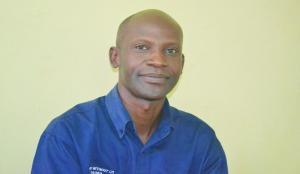 IN the words of President Edgar Lungu when he opened Parliament last week, Zambia remains committed to the attainment of the Vision 2030 of becoming a prosperous middle-income nation.
IN the words of President Edgar Lungu when he opened Parliament last week, Zambia remains committed to the attainment of the Vision 2030 of becoming a prosperous middle-income nation.
To understand this concept, one needs to know that the World Bank classifies countries according to many factors, one of which is economic stability.
There are three economic categories: Being high, middle, and low, with the middle-income category further subdivided into lower middle or upper middle income.
President Lungu’s reaffirmation focused on Zambia’s desire for an economy which will be competitive, self-sustaining, dynamic and resilient to any external shocks.
Zambians today are familiar with external shocks going by recent happenings where China decided to devalue her currency, the Yaun, a move which shook other international currencies.
It is the desire of President Lungu that at least, by the year 2030, Zambia could withstand economic shocks caused by international economic manoeuvres.
“Beyond 2030, we aspire to be a developed country by 2064 through our transformational agenda which prioritises seven thematic areas.
“These are: Diversification and sustainable development; infrastructure development; human capital development; democracy and good governance; gender and social protection; economic diplomacy, global partnerships and national defence; and culture re-modelling,” President Lungu said.
He went on to dissect the areas of need that would deliver the much needed goal.
That although Zambia’s economy has been registering favourable Gross Domestic Product (GDP) growth rate over the past decade, averaging around 6 per cent, Government wass aware that there is need for the economy to register at least 10 per cent GDP.
That kind of GDP growth rate the President said could have an effective impact on reducing poverty which is currently around 60 per cent.
He said; “Our aim is to move towards a smart economy which is characterised by access to capital, markets, talent, infrastructure, reliable and predictable regulations.
In addition, we need to promote a functional culture and social networks. Furthermore, we need to promote ethical behaviour in public and private sectors anchored on zero tolerance to corruption.”
Such aspirations comes about considering that there would be need to sustain a population expected to grow.
“The Zambian population is projected to reach 52.1 million in 50 years’ time.
To attain our aspiration to be a developed country by 2064 and be able to support a population of that size, the economy needs to grow at a sustained double digit GDP growth rate.
Double digit GDP growth rate can be achieved if we embark on strategic and focused diversification interventions that generate new growth possibilities,” President Lungu said.
In pursuant to such intentions, President Lungu announced the realignment of some institutions to promote synergies in the planning, implementation, monitoring, evaluation and coordination of national programmes.
The measures includes; The National Planning function moving from the Ministry of Finance to form the new Ministry of Development Planning.
The Ministry of Education, Science, Vocational Training and Early Education split into the Ministry of General Education and the Ministry of Higher Education.
The Ministry of Mines, Energy and Water Development split into two: the Ministry of Mines and Mineral Development; and the Ministry of Energy and Water Development.
The Ministry of Transport, Works, Supply and Communication split into the Ministry of Works and Supply; and the Ministry of Transport and Communication.
Others are the Ministry of Agriculture and Livestock split into Ministry of Agriculture, the Ministry of Fisheries and Livestock.
The President further thought that Zambia must implement measures that will re-shape her export earnings so that not less than 50 pre cent of her export earnings come from non-traditional exports by 2030.
This will be achieved through transforming the country from being one of the largest exporters of copper in Africa to being one of the largest exporters of value added products.
Another measure is that of empowering citizens to enable them own shares in some of the state-owned companies in Zambia.
Obviously, the nearly established Industrial Development Corporation (IDC) that has so far been explained will be an important tool in achieving that goal.
If well implimented and supported, Zambia will be like other countries such as Singapore and South Korea who transformed into developed countries within a generation.
“This was as a result of their strong will and determination. It is, therefore, equally possible for us to attain this aspiration as long as we are focused and determined as a nation,” President Lungu said.






